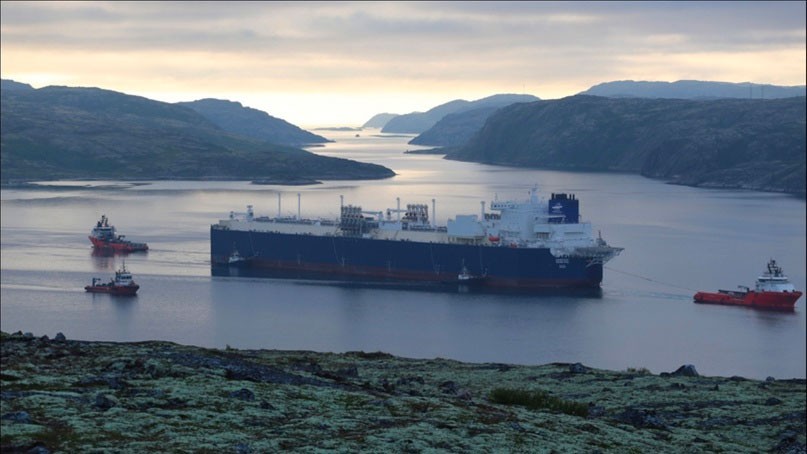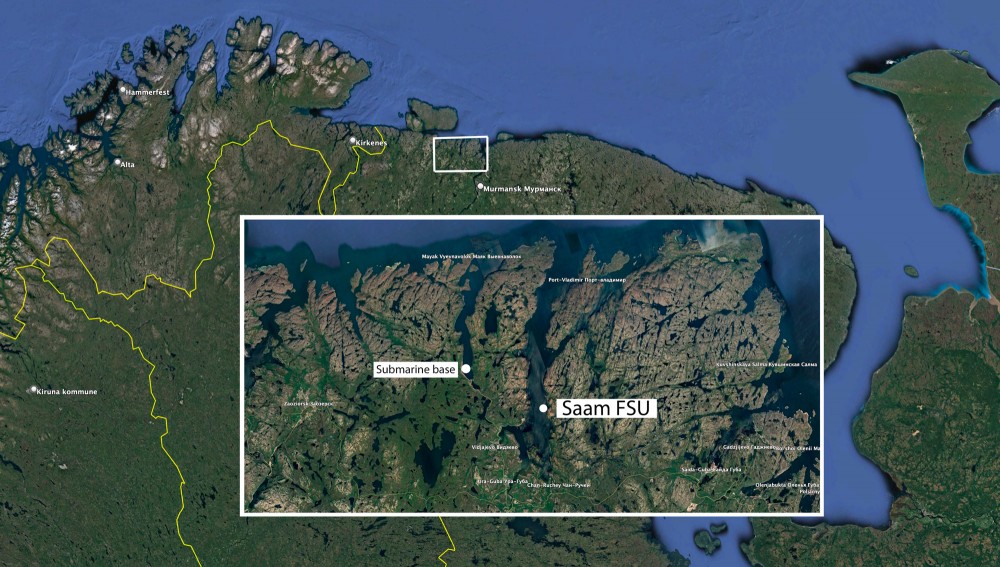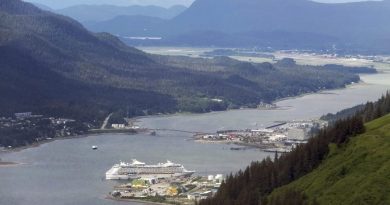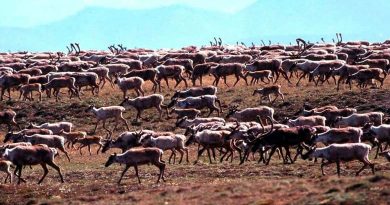Six months after arrival to Ura Guba, Novatek’s new storage tanker is still unused

The 400 meter long and 60 meter wide vessel arrived in Ura Guba on the Barents Sea coast in late June 2023, and appears not to have handled a single shipment of liquified natural gas.
Judging from available shipping data, the Saam FSU has been lying idle in the remote bay ever since arrival.
The Panama-registered unit was to serve as transshipment base for Novatek’s liquified natural gas from the Yamal LNG and Arctic LNG 2 projects. The latter has been significantly delayed and Novatek is unlikely to get its three project trains in operation as planned.
But it is international sanctions that is the main problem for Novatek, energy expert Mikhail Krutikhin says in a comment to the Barents Observer.
“The problem is with the recent US sanctions against the operator of the transshipment hub,” he explains.

“It is open to speculations whether Novatek will be able to use this hub because of the sanctions,” he adds.
In September 2023, the US Treasury launched a series of additional sanctions against Russian companies. Novatek and its Arctic subsidiaries were among the key targets.
To the list was added the Arctic Transshipment (Arkticheskaya Perevalka), a subsidiary of Novatek and the owner of the Saam. It also owns and operates the Koriak FSU, a sister ship of the Saam, based in Kamchatka.
Few weeks later, also the Arctic LNG 2 developing company was added the sanctions list.
Novatek is now at odds over what to do with its two FSUs.
Until now, the company has been able to proceed with the development of Arctic projects, such as the Arctic LNG 2, despite the mounting international pressure.
In mid-August 2023, the company towed a 640,000 ton heavy production unit more than 2,000 km from Murmansk to the Utrenneye port in the Gydan peninsula. In mid-February this year, a tanker made port call in Utrenneye, which indicates that production has been started and that the first shipment will soon set out from the Gulf of Ob.
Thanks to supplies from Chinese manufacturers, the construction of a second unit is proceeding at the company’s yard in Belokamenka.
The Chinese have become a main partner for Novatek, but they might not be able to help the company overcome the problem with the Saam FSU.
The floating storage unit was built by Daewoo Shipping & Marine Engineering in South Korea and towed to the Kola Peninsula in a 4-months logistical operation.
When in operation, the FSU will significantly facilitate Novatek’s export of LNG. Ice-class tankers will shuttle from the company’s production plants in the Yamal and Gydan Peninsulas and reload the LNG to the FSU, whereupon conventional carriers will pick up the natural gas and bring it to buyers across the globe.
Until now, the ice-class carriers have mostly shipped the LNG all the way to markets themselves.
The Ura Guba is located about 50 km northwest of Murmansk City and 100 km east of the border to Norway. Only few kilometers away is the closed military town of Vidyaevo and a nuclear submarine base operated by the Northern Fleet.
Related stories from around the North:
Canada: Canada comes out in favour of heavy fuel oil ban in Arctic, Eye on the Arctic
Finland: Finland investigates oil leak risks from Baltic Sea shipwrecks, Yle News
Greenland: Inuit work towards greater voice in shipping as IMO meeting gets underway, Eye on the Arctic
Iceland: Iceland to restrict heavy fuel oil use in territorial waters, Eye on the Arctic
Norway: LNG-reloading operations end in Norway’s Arctic waters, The Independent Barents Observer
Russia: Shipping figures rising on Russia’s Northern Sea Route, The Independent Barents Observer
United States: Carnival Corporation ships switch to cleaner fuel on Arctic cruises, Radio Canada International



